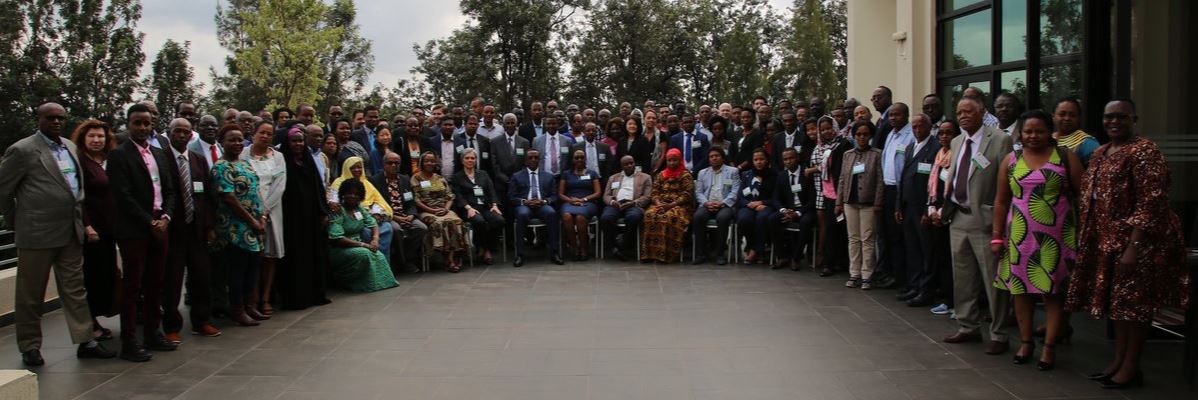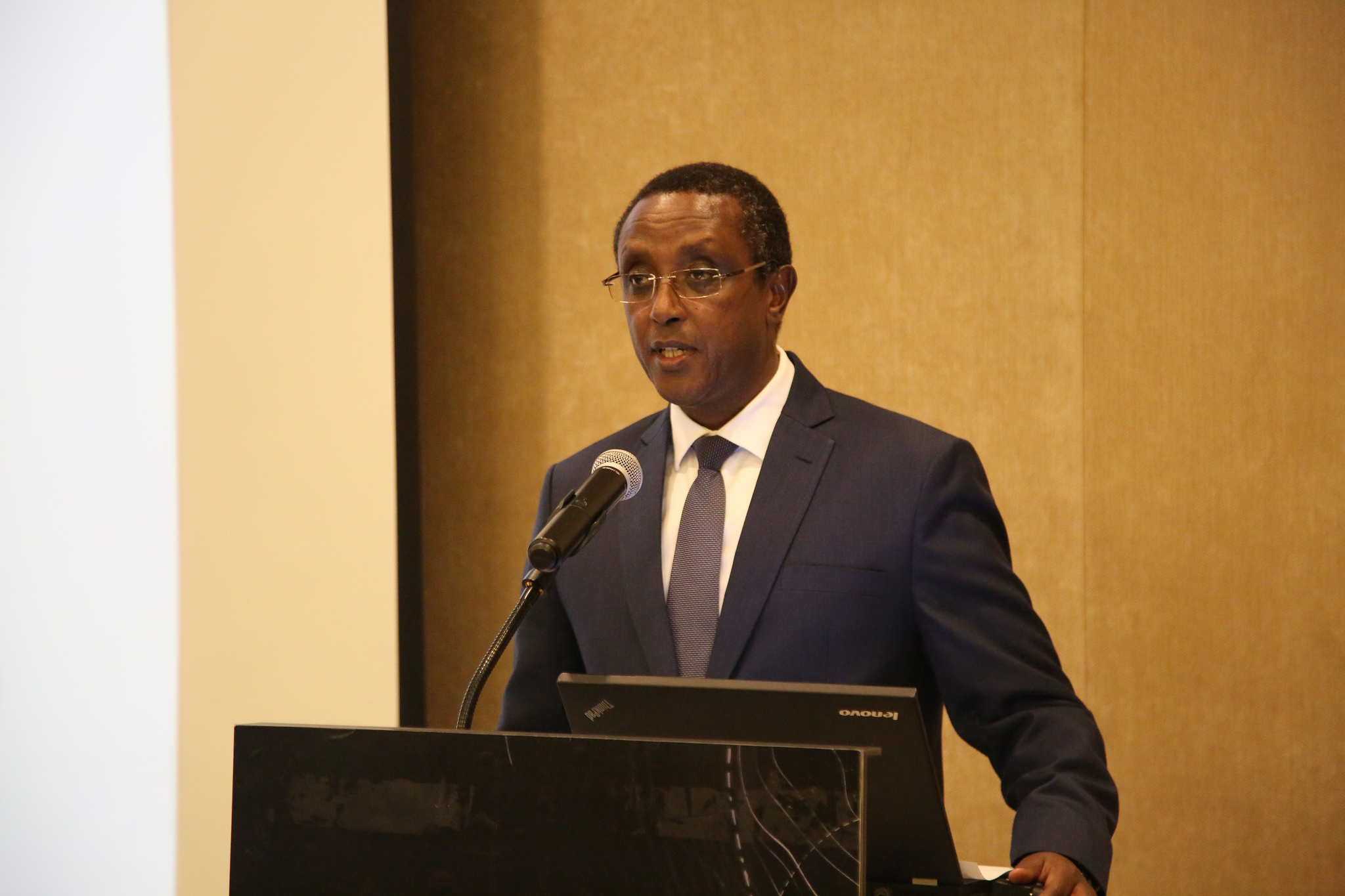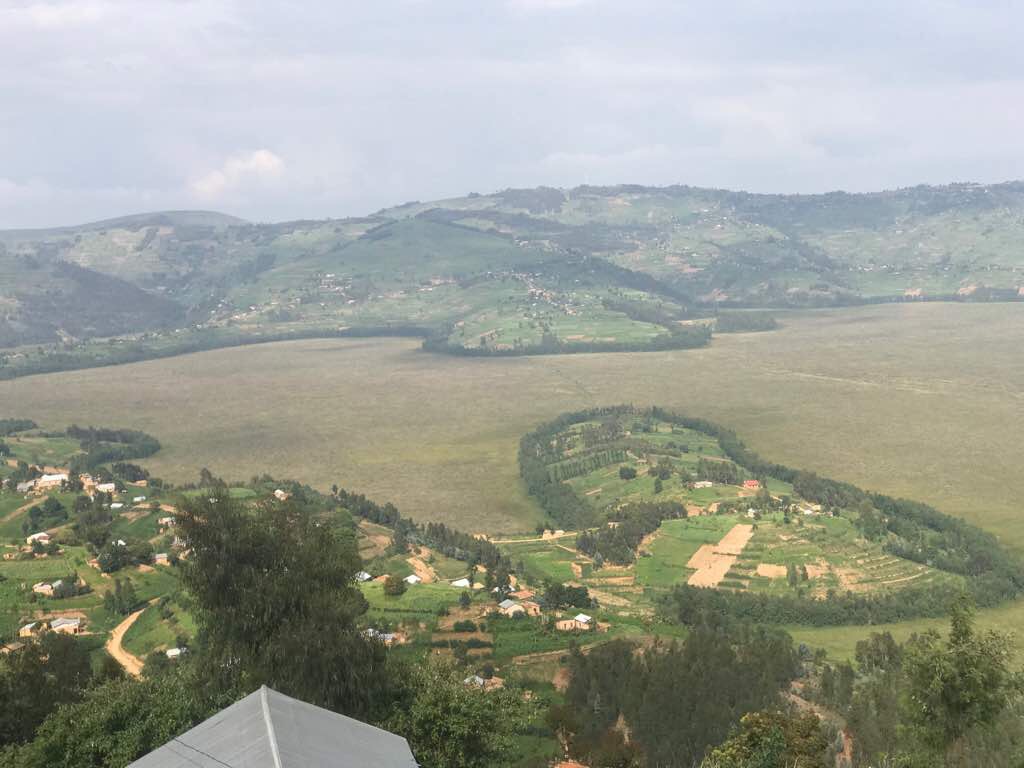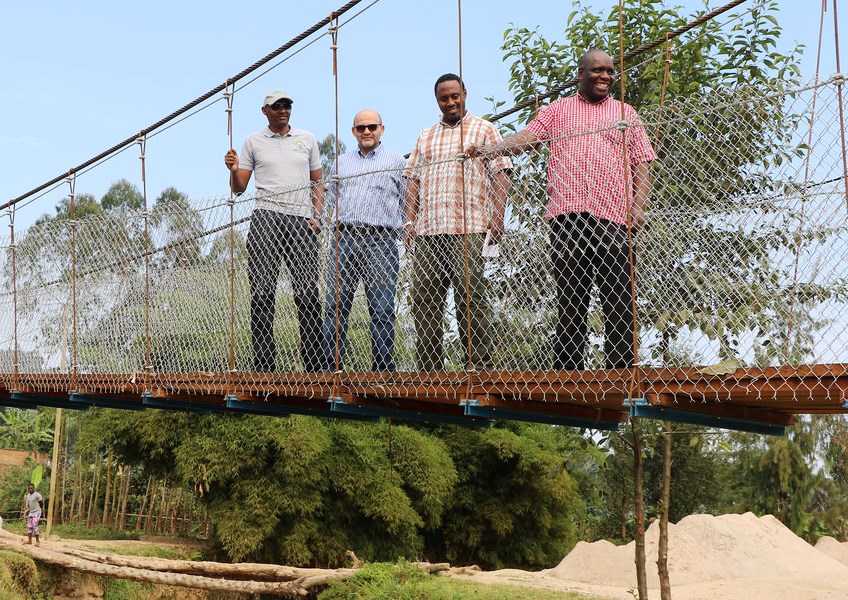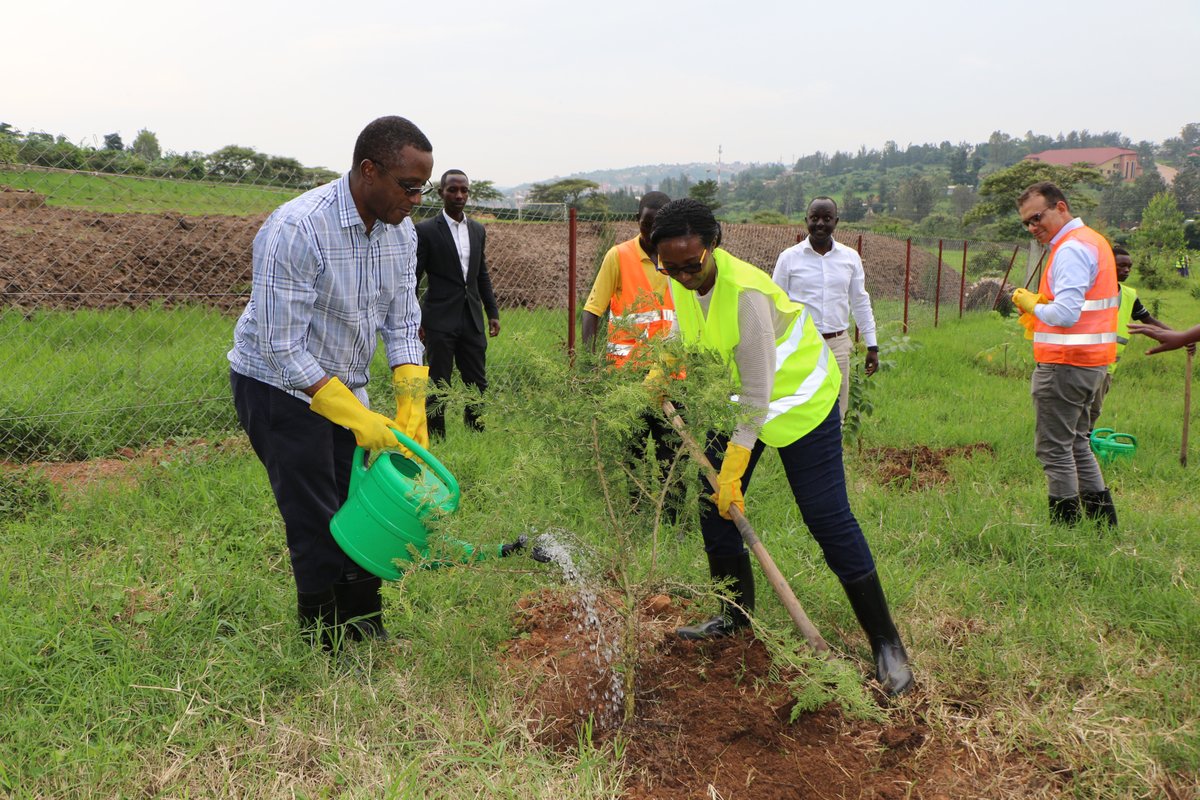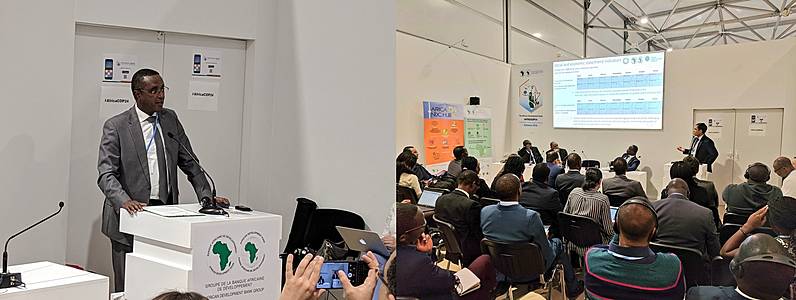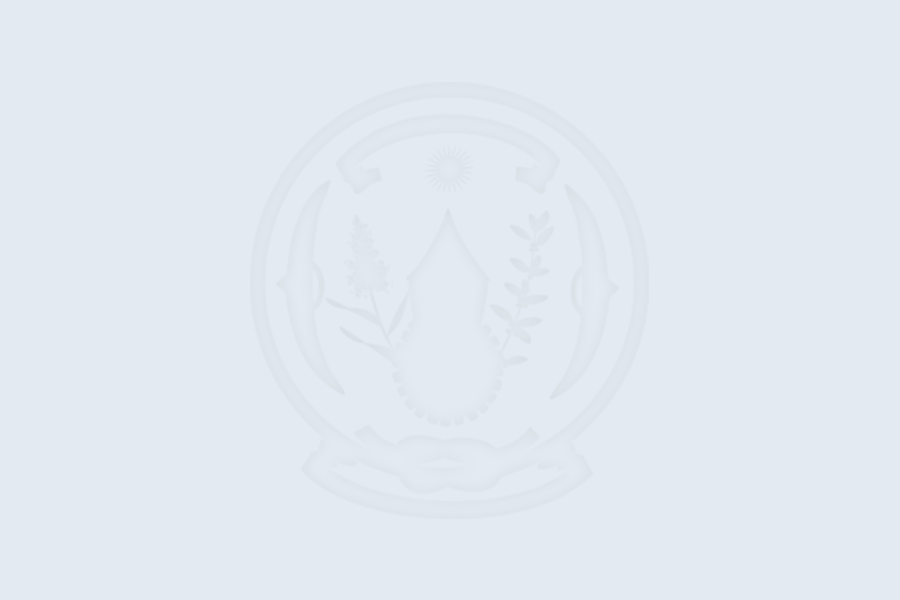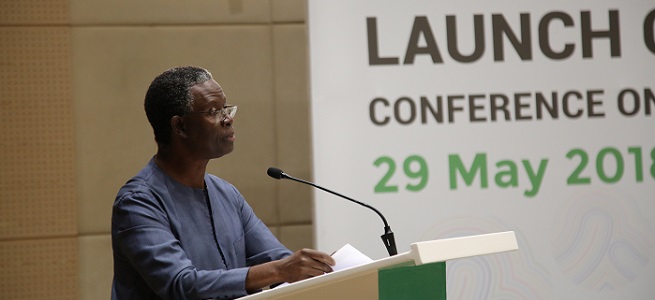
Remarks by UN Resident Coordinator Dr Fode Ndiaye at Launch of National Environment Week
Nyakubahwa Minister of Environment, Dr. Vincent Biruta,
Honorable Ministers here present,
Senior Government Officials here present,
Honorable Members of Parliament,
Provincial Governors and Mayors Here present,
Excellencies Representatives of the Diplomatic Community and Heads of Cooperation Agencies,
Colleagues from One UN in Rwanda,
Representatives of CSOs, NGO’s Private Sector and the Media,
Distinguished Guest, Ladies and Gentlemen,
Mwaramutse mwese! Good morning to you all.
Mbere na mbere mbashimye ubutumire bwanyu mu gutangiza icyumweru cyo kurengera ibidukikije.
First of all, I would like to thank you for inviting me to the launch of the 2018 National Environment Week.
Nyakubahwa Minister, Today, we have gathered to launch a national week for World Environment Day - a week we open with a debate on this year’s theme “Beat Plastic pollution”.
Let me congratulate the Government of Rwanda and His Excellency, the president of Rwanda, Paul Kagame, for a strong commitment and leadership to ensure a healthy planet which is essential for a prosperous and peaceful future.
As His Excellency said during the World Economic Forum summit in 2015: “We are not making a choice between environment and prosperity; but we are rather looking at how we combine both.”
Plastic is cheap, plastic is robust, plastic is flexible, plastic is useful. That is why we are consuming it at staggering rates and volumes. Plastic is everywhere, in everything. And precisely because it is everywhere, it is deteriorating our environment and oceans. Figures speak volume:
“Each year, more than 8 million tonnes of plastic end up in the oceans, wreaking havoc on marine wildlife, fisheries and tourism, and costing at least $8 billion in damage to marine ecosystems. Up to 80 per cent of all litter in our oceans is made of plastic.
According to some estimates, at the rate we are dumping items such as plastic bottles, bags and cups after a single use, by 2050 oceans will carry more plastic than fish and an estimated 99 per cent of seabirds will have ingested plastic.”
As Erik Solheim, Head of UN Environment, said ahead of this year World Environment Day on Sunday: “It is not a war against plastics but the focus is on its smatter and safer use with drastic reduction of single use.”
World Environment Day (WED) was established in 1972 but first held in 1974. It focuses on environmental concerns ranging from pollution to global warming and sustainable food production to protection of wildlife.
Nyakubahwa Minister (s),
Distinguished Guests, Ladies and Gentlemen,
Environmental protection has become one of the Rwandan government’s highest priorities as it is stated in the Rwandan Constitution that: ‘Everyone has the right to live in a clean and healthy environment’ (The Constitution of the Republic of Rwanda, 2015, Article 22).
Already Rwanda has shown strong commitment to the protection of the environment, hosting the 2010 World Environment under the theme “Many Species. One Planet. One Future.”
Rwanda has nurtured a vision of a clean, healthy and wealthy country. For instance, in 2006 Rwanda passed a bill banning manufacture, importation and use of plastic bags. The main objective was to address the adverse environmental consequences associated with the non-biodegradable nature of plastics. Rwanda is therefore proudly amongst more than 40 countries around the world that have banned, restricted or taxed the use of plastic bags. Merging the protection of the environment and economic development is becoming one of the key features of the Rwandan model for sustainable development.
Nyakubahwa Minister (s),
Distinguished Guests, Ladies and Gentlemen,
Eliminating plastic pollution is of outmost importance for the United Nations. United National Secretary-General, Antonio Guterres” said before the 2017 UN Environment Assembly: “Beating pollution will help reduce poverty, improve public health, create decent jobs, address climate change and protect life on land and sea.”
Before the Assembly, nearly 200 countries recognized that we are fast becoming a plastic planet and that actions to reverse the trajectory are needed. In effect, eliminating plastic from our environment would contribute to the achievement of 8 goals out of 17 (Goal 3,6,11,12,13,14, 15 and 17).
In December 2017, the 3rd meeting of the United Nations Environment Assembly (UNEA 3), through a resolution, Member States supported, a series of actions to eliminate the discharge of plastic litter and microplastics into the oceans, including through preventing plastic waste, increasing reuse and recycling and avoiding the unnecessary use of plastic, highlighting the role of extended producer responsibility.
The resolution also sets up a process to intensify coordinated international action, with the newly established Ad Hoc Open-Ended Expert Group which will examine options for combating marine plastic litter and microplastics from all sources, including through global legally binding mechanisms.
On 23 February 2017, UN Environment launched an unprecedented global campaign to eliminate major sources of marine litter: microplastics in cosmetics and the excessive, wasteful usage of single-use plastic by the year 2022.
“We use 10 million plastic bags per minute, this is not a problem that can be solved by legislation alone”, said the Head of UN Environment.
I strongly believe that we need a broad alliance including governments, CSOs, NGOs, DPs, private sector and businesses and more importantly citizens, every day and everywhere. It is about behavioral change from production to usage and disposal. Today, we are producing twenty times more plastic than in the 1960s, and around one third of all plastic is used for packaging. Small changes will matter. Let us individually take today a commitment in refusing to use plastic whenever possible or to reuse it, if not possible! It is in our personal hands to end the dangerous plastics! Let us help clean our environment. Register you #BeatPlasticPollution activity!
In Rwanda, environment remains a key national priority as stated in the National Strategy for Transformation (NST 1; 2017-2024) and subsequently a key element of our new UN Development Plan (2018-2023) and UNDP Country Programme Document (2018-2023). Therefore, ONE UN Rwanda will keep on working with the Government of Rwanda and especially the Ministry of Environment in implementation the NST1 and the Environment and Natural Resources Sector Strategic Plan.
Honorable Minister,
Looking at the programme for this National Environment Week that we launch today, I am pleased to see a wide range of events to raise awareness about this year’s theme.
The high-level policy dialogue being held today will not only review the concrete achievements made in recent years by Rwanda towards eliminating plastics but also what remains to be done at policy level and implementation to use plastic in creation of jobs and combat poverty at all levels.
Thank you very much for your kind attention. Murakoze Cyane, Merci beaucoup.
TURIKUMWE
ABASHYIZE HAMWE NTA KIBANANIRA
Topics
More posts
Rwanda Hosts the GEF Eastern Africa Expanded Constituency Workshop
Kigali, 12 February, 2019 – Participants from 14 East African countries are meeting in Rwanda for a four day Expanded Constituency Workshop, organized…
Global Environment Facility Expanded Constituency Workshop for Eastern Africa-Opening Remarks by Minister Biruta
Marriott Hotel, Kigali | 12 February 2019
● Francoise Clottes, Director of Strategy
● and Operations, Global Environment Facility
● Coletha Ruhamya,…
Rwanda celebrates World Wetlands Day to raise public awareness to relocate illegal activities from wetlands
Kigali, 31 January, 2019 - Rwanda celebrated World Wetlands Day on 31 January, 2019 in an event aimed to raise awareness to to relocate illegal…
Rwandans Urged to Wisely Use Wetlands as the Country Celebrates the World Wetlands Day 2019
Every year, Rwanda joins the world in commemoration of the World Wetlands Day (WWD), celebrated on 2nd February with the aim of raising public…
Restoring Gishwati-Mukura Landscape: Improving livelihoods while Promoting Tourism
The Rwanda Environment Management Authority (REMA) through Landscape Approach to Forest Restoration and Conservation (LAFREC) project is…
Activities for Transforming Nyandungu Wetland into an Eco-Tourism Park on Track
The Minister of environment Dr. Vincent Biruta has commended the good progress over the implementation of the project of turning Nyandungu wetland…
Remarks by Minister Biruta at AfDB-GGGI Study on Africa Green Growth Readiness Assessment COP24
10 December 2018
·Frank Rijsberman, Global Green Growth Institute Director General
·Amadou Hott, Vice-President, Power, Energy, Climate and Green…
Rwanda Fosters Green Investment and Sustainable Development in the First Event of the Africa Green Green Growth
A high-level policy dialogue was organised to share the progress made in the implementation of Rwanda’s Green Growth and Climate Resilience Strategy…
Africa Green Growth Forum Participants Encourage Young Students to Be Environment Champions
On the first day of the Africa Green Growth Forum, participants took part in planting trees with students from three primary schools. Themed, “Green…
